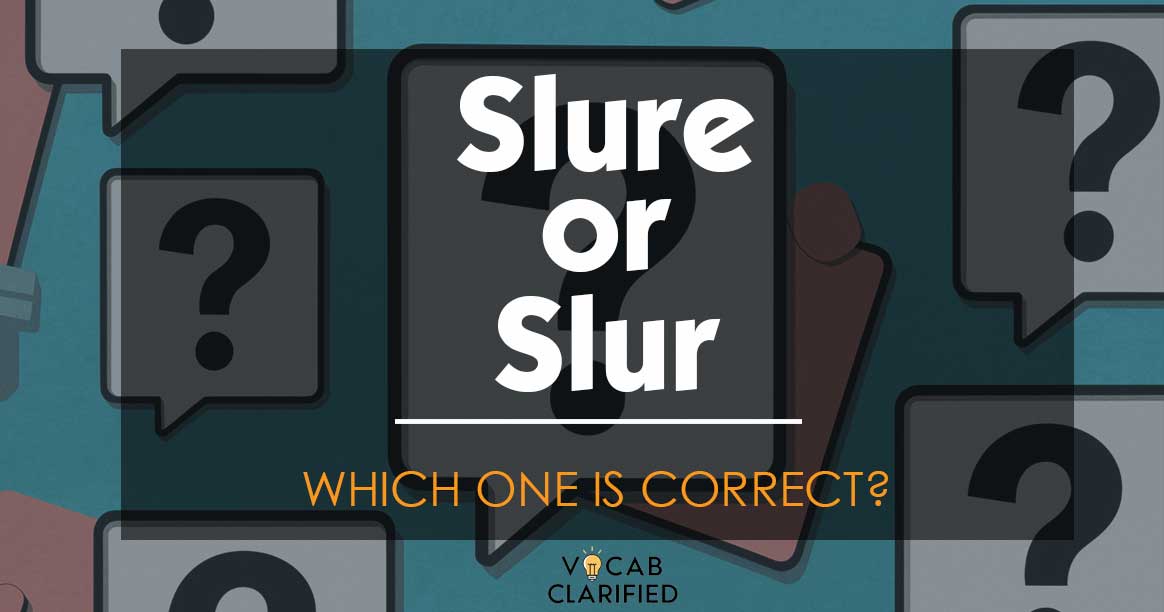You’ve just encountered the word “slur” in a conversation or while reading, but then you wonder—could it also be spelled “slure”? The confusion between “slur” and “slure” is common, especially when considering the complexities of English spelling. However, only one of these terms is correct in standard English.
This article will explore the difference between “slur” and “slure,” helping you avoid this common spelling mistake.
Understanding Slure and Slur
Slure: Definition and Usage
“Slure” is not a recognized word in English. It is often a misspelling or typographical error of the word “slur.” Because “slure” does not exist in the English language, it has no definition or proper usage.
For example:
- Incorrect: His speech was difficult to understand due to the slure in his words.
Slur: Definition and Usage
“Slur” is the correct word and has multiple meanings depending on the context. As a noun, it can refer to an insulting or disparaging remark, or a way of speaking where words run together indistinctly.
As a verb, it means to speak unclearly or to pass over something hurriedly without proper attention.
For example:
- As a Noun: The politician’s remark was considered a racial slur.
- As a Verb: After a few drinks, he began to slur his words.
Side-by-Side Comparison
Here’s a side-by-side comparison to clarify the difference between “slure” and “slur”:
| Aspect | Slure | Slur |
| Definition | Not a recognized word; incorrect spelling | A disparaging remark; unclear speech |
| Common Usage | Incorrect: “She made a rude slure.” | Correct: “She made a rude slur.” |
| Key Differences | Not a word in English | Correct spelling, multiple meanings based on context |
When deciding between “slure” and “slur,” always choose “slur” as it is the correct and recognized spelling.
Everyday Usage Examples
Here are some examples to illustrate how “slur” is used in different contexts:
- Noun: The comedian’s joke was criticized as an ethnic slur.
- Verb: After the accident, he tended to slur his speech.
- Noun: Her comment was taken as a personal slur against his character.
- Verb: He slurred the names during the presentation, making it hard to follow.
- Noun: The article contained a subtle slur against the company’s reputation.
- Verb: Due to his nervousness, he began to slur the words in his speech.
Conclusion
In conclusion, while “slure” might seem like a plausible spelling, it is incorrect. The correct word is “slur,” which can be used as both a noun and a verb, depending on the context.
Understanding this distinction will help you avoid common spelling errors and communicate more effectively.

